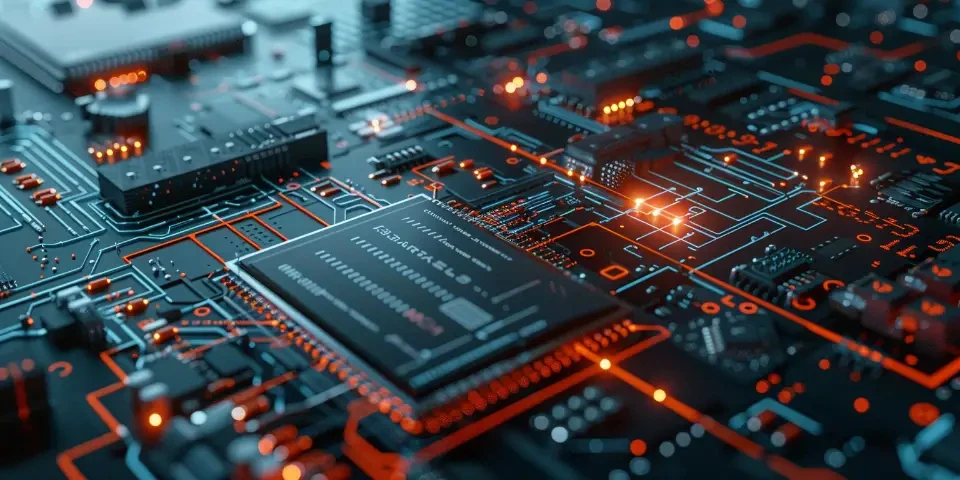The AI Revolution in Education Personalized Learning at Scale
Introduction:
The rapid advancement of artificial intelligence (AI) technology has brought about a revolution in various industries, including education. Traditional methods of teaching and learning are being significantly transformed, thanks to AI-powered tools and platforms. This article explores the various aspects of AI revolution in education and its impact on personalized learning at scale.1. Adaptivity in Learning:
AI algorithms can analyze vast amounts of student data to identify individual strengths and weaknesses. This allows for personalized learning experiences tailored to the specific needs of each student. Adaptive learning software such as Knewton and DreamBox are examples of how AI is enabling customized learning paths.

Moreover, AI-powered chatbots like Duolingo and Coursera's AI Teaching Assistants provide real-time feedback and guidance, further enhancing the adaptivity of the learning process.
2. Intelligent Tutoring:
AI tutors are replacing traditional human tutors by providing personalized instruction and support. These tutors, like Carnegie Learning and Third Space Learning, use natural language processing and machine learning algorithms to understand student queries and offer targeted responses to help them overcome learning challenges.
Such intelligent tutoring systems can effectively diagnose student difficulties, assign relevant practice exercises, and track learning progress, all without the limitations of human availability and expertise.
3. Automated Grading and Feedback:
AI-powered grading systems, such as GradeScope and Turnitin, automate the process of grading assignments, reducing the burden on educators. These systems use machine learning algorithms to evaluate student work and provide feedback, allowing teachers to focus on providing more personalized and constructive guidance.
Additionally, AI-driven essay evaluation tools like e-Rater and PEG assist in providing instant and reliable feedback on writing assignments, helping students improve their writing skills.
4. Virtual Reality (VR) and Augmented Reality (AR) in Education:
AI combined with VR and AR technologies is revolutionizing the way students experience education. Platforms like Nearpod and ClassVR enable immersive learning experiences, allowing students to explore simulations, historical reenactments, and virtual environments.
By providing interactive and engaging content, these technologies enhance student understanding and retention of complex concepts.
5. Intelligent Content Recommendation:
AI algorithms can analyze student learning patterns to recommend relevant content, resources, and courses. Platforms like Khan Academy and Udemy leverage AI to suggest personalized learning paths based on individual interests and goals.
This personalized content recommendation assists students in exploring new subjects and fosters a self-directed learning approach.
6. Early Intervention and Student Support:
AI-driven systems can detect learning difficulties and identify students who may require additional support. By analyzing student performance data, platforms like Renaissance accelerate the process of identifying struggling students and provide targeted interventions.
Furthermore, AI-enabled student support systems, such as Woebot and Talkspace, offer mental health support and counseling, ensuring holistic well-being and addressing the emotional aspects of learning.
7. Data-Driven Decision Making:
AI technology enables educators and administrators to make data-driven decisions for improving educational outcomes. Learning analytics platforms like Brightspace and PowerSchool provide comprehensive student performance insights, enabling educators to identify trends, measure effectiveness, and make informed instructional decisions.
By harnessing AI's analytical capabilities, educational institutions can continuously enhance their teaching strategies and optimize the learning environment.
Frequently Asked Questions:
Q: Are AI-powered learning platforms replacing teachers entirely?
A: AI technology is not meant to replace teachers, but rather to augment their abilities and enhance the learning experience. The role of teachers remains essential in providing guidance, support, and fostering critical thinking skills.
Q: Is AI revolutionizing education accessible to all students, regardless of socioeconomic status?
A: While the accessibility of AI varies across regions and educational institutions, efforts are being made to ensure equal access. Open-source platforms like OpenAI and MOOC platforms like Coursera offer free access to AI-powered educational resources, democratizing learning opportunities.
Q: Does AI in education compromise student privacy?
A: Protecting student data and privacy is crucial. AI systems in education must adhere to strict data protection regulations and ensure secure handling of personal information. Educational institutions should prioritize transparency and obtain consent before utilizing student data for AI-driven purposes.
Conclusion:
The AI revolution in education has unlocked a realm of possibilities for personalized learning at scale. With adaptivity, intelligent tutoring systems, automated grading, VR/AR, intelligent content recommendation, early intervention, data-driven decision making, and more, AI continues to reshape education and transform the way students learn, teachers teach, and institutions operate.
References:
(1) "AI in Education: AI-Powered Adaptive Learning" - https://builtin.com/artificial-intelligence/adaptive-learning
(2) "Tools for AI in Education and Learning" - https://towardsdatascience.com/tools-for-ai-in-education-and-learning-4d150ced013d
(3) "Artificial Intelligence and Virtual Reality in Education" - https://www.igi-global.com/chapter/artificial-intelligence-and-virtual-reality-in-education/167900
Explore your companion in WeMate